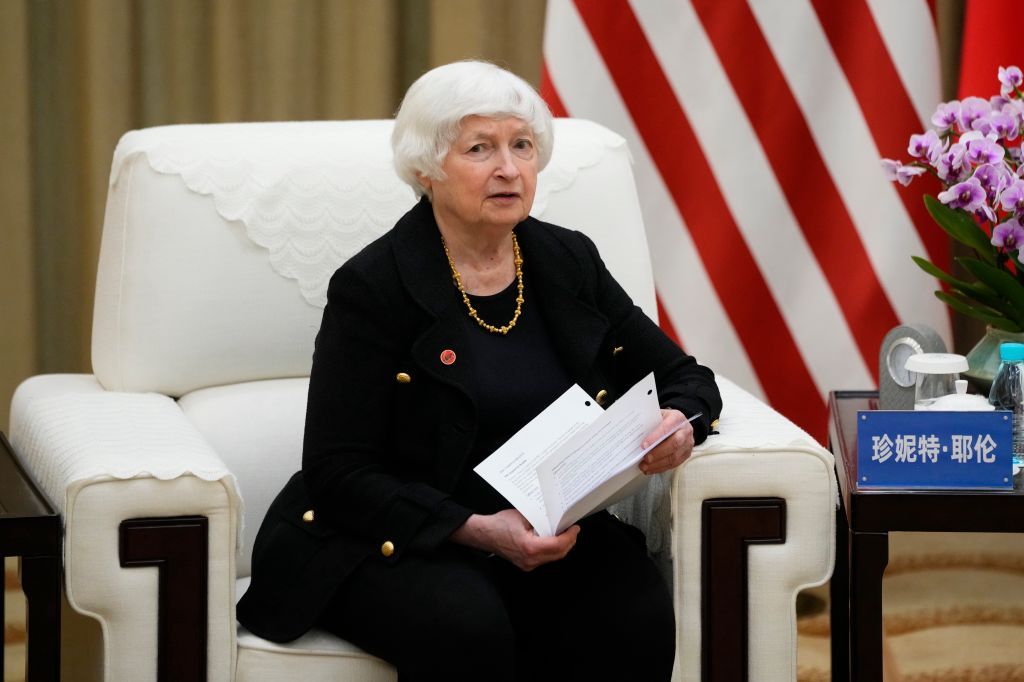U.S. Treasury Secretary Janet Yellen recently warned Beijing of “significant consequences” if Chinese companies provide support for Russia’s war against Ukraine. This warning came during Yellen’s meetings with Chinese Vice Premier He Lifeng in Guangzhou. The U.S. has been urging China to use its influence over Moscow to help end the war and has specifically cautioned against providing Russia with lethal military aid. China has maintained close ties with Russia during the conflict, increasing economic cooperation and disrupting Western attempts at isolating Russia. Expanded trade with China has played a crucial role in allowing Moscow to keep its economy running and ramp up its military industry despite Western economic pressure.
The U.S. has expressed concerns that China has been providing support to Russia’s war efforts at a concerning scale. U.S. Secretary of State Antony Blinken recently informed EU and NAO foreign ministers in Brussels that China was aiding Russia by providing tools, inputs, and technical expertise. This assistance has reportedly been focused on Russia’s production of optical equipment, propellants, and its space industry. Blinken emphasized that this support not only contributes to Russia’s aggression in Ukraine but also poses a threat to other countries. Yellen’s warning to China regarding providing material support for Russia’s war underscores the broader efforts by the U.S. to prevent countries from aiding Moscow and prolonging the conflict.
The warnings from U.S. officials to China mark a shift in the relationship between the two global powers. The U.S. has been stepping up its pressure on China to stop supporting Russia and to use its influence to help bring an end to the war. This development was described as striking during the discussions between Blinken and foreign ministers. The U.S. has been trying to prevent the flow of lethal military aid to Russia, as such support could further exacerbate the conflict and result in more casualties. By engaging with China on this issue, the U.S. aims to leverage Beijing’s influence over Moscow to bring about a resolution to the war in Ukraine.
The conflict in Ukraine has been ongoing for over two years, with Russia resorting to various tactics to sustain its military operations. Moscow has implemented a draft, expanded state-sponsored mercenary companies, recruited convicted prisoners, and forcibly conscripted individuals in occupied territories. The involvement of proxies from occupied Donetsk and Luhansk oblasts has also been a significant aspect of Russia’s military strategy in Ukraine. Despite international condemnation and efforts to isolate Russia, Moscow has continued its aggressive actions in Ukraine, causing widespread destruction and loss of life. The war has had profound humanitarian consequences, leading to displacement, suffering, and instability in the region.
The war in Ukraine has also highlighted the complex geopolitical dynamics at play, with major powers like the U.S., China, and Russia jockeying for influence and control. The involvement of China in providing support to Russia has raised concerns about the implications for global security and stability. The warnings from U.S. officials to China underscore the importance of preventing the spread of conflict and ensuring that countries do not contribute to escalating violence. The conflict in Ukraine serves as a reminder of the enduring challenges of resolving conflicts through diplomatic means and the need for international cooperation to address complex crises. As the conflict continues, the role of major powers in shaping the outcome of the war remains a critical factor in determining the future of Ukraine and the broader implications for regional and global security.


